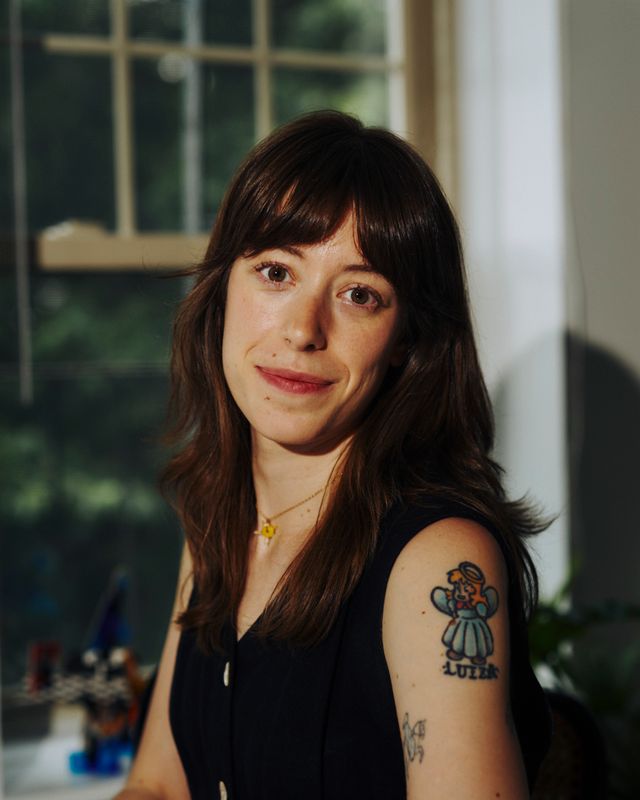
Are You Ready To Unlearn An Old Belief? Here’s How
I remember sitting in a class with a seasoned professor and practicing psychoanalyst in a course on the post-Freudians — those who, after Freud, took up the project of psychoanalysis, translating it into new terms and expanding it into new territory. My professor might even be counted among them.
He’s what you imagine an Upper West Side analyst might look like: Always dressed in a suit, except for directly following his traditional August break, when he showed up for the first few classes in a short-sleeve shirt that displayed his tan, earned on a Greek island (or so the story went). In his lessons, he rarely strayed from the text. Every Monday night was a close reading, often word by word, of the assigned material for that week. He’d disambiguate the text carefully, with reference to the historical moment, the author’s library, and their personal history. Only every so often would he share his own clinical experience, so it was always memorable when he did.
One day, he said something confounding. Something to the effect of: “Most patients, if the treatment has been successful, remember almost nothing of it.”
“Most patients, if the treatment has been successful, remember almost nothing of it.”
There I was, carefully taking notes on each word of the lecture — interested both in the theory and how it would apply to my work in the future with patients — and my professor was emphasizing the importance of forgetting? My mind flashed to my own analysis, which I attended four times a week. I often found myself wondering about the moments after a session, when, immediately upon walking out of the office, I would start to piece back together what had happened. What was it exactly that my analyst said again?
As I continued my studies and my analysis, I realized how common this is — and that it was actually a defense. A defense against the decomposition of certain beliefs and behaviors that the analysis was after. What was a treatment like this after all, besides unlearning one way to be in the world in order to take up another? To put it in a simple sentence like that inevitably idealizes it. The years-long process of psychoanalysis is hard work — and it’s frustrating by necessity. But ultimately, I’ve found that what my professor said is true. In the best cases, all of the hard work of analysis leads you to a place where you can blissfully forget the conflicts that preoccupied you session after session, sometimes even for years on end.
“In the best cases, all of the hard work of analysis leads you to a place where you can blissfully forget the conflicts that preoccupied you session after session, sometimes even for years on end.”
How do our beliefs get cemented?
We spend the early years of our lives learning beliefs and behaviors that allow us to navigate the world. We’re told things by the adults — and moreover, we figure things out ourselves. Between received guidance and our own constructions, we make sense of what is inexplicable to that point. For most of us, our early life is almost totally colored by learning — lessons, schoolwork, motor skills, reading — between our home lives, where lessons and making connections prevail, and our time spent in educational settings, where this is formalized. We become acquainted with the world in a million little ways. When this happens, that happens.
“We spend the early years of our lives learning beliefs and behaviors that allow us to navigate the world.”
What comes to be our belief system is cemented during this period and starts to define how we approach people, understand what is possible, and even how we move and think. In tandem with this, we take up a place from which to speak. Who am I? What role do I have in this world? We find a comfortable place to take up relative to others. This is how we find ourselves later repeating familiar cycles. Always the bridesmaid, never the bride, for instance.
Limiting beliefs are precisely the kind of thing psychoanalysis goes after. “Things never work out for me.” “My thoughts aren’t a valuable contribution; it’s better if I stay quiet.” “I could never compete against others and win.” Of course, these are conscious on some level. We repeat them in our private thoughts in so many permutations. On the other hand, they are unconscious insofar as they direct our behaviors without us ever really thinking about it. This is what can take so long to treat, and needs to be spoken in the context of the relationship between oneself and their therapist, in order to finally allow us to find a new place to take up in the world.
How can psychoanalytic psychotherapy help us release and forget?
If the problem is we’ve been told and shown things that have calcified our beliefs — will more directives, more advice, more what’s good and what’s bad help us escape this position? That’s where the psychoanalytic process comes in.
While some other modalities might focus on adopting a new belief, or changing your behavior, psychoanalysis asks for something that might seem besides the point. The fundamental rule of treatment is to say whatever comes to mind. This is the famous free association, and it isn’t so easy. Usually, we come into treatment wanting to address our problems head-on, to come out of each session with an answer. Working through this and finding more freedom in your speech is all part of the process. It often isn’t until later, when you can allow yourself some room to not be in control of what you say, that the process truly takes hold.
“The process of speaking, hearing ourselves, and coming to terms with what it is that we’re saying, is the quasi-mystical process of analysis.”
The wager of psychoanalysis is that what grounds these beliefs is what I’ve described above — and not only our childhood, but also other traumatic encounters for which we have to find a solution to keep on living. Beliefs are those things that keep us together, and make our lives make sense. They’re important, and it isn’t until they get in the way of our living that one comes seeking treatment. Once we start asking, Must it always be this way? Once this is the case, we have to begin to hear from ourselves why we have these beliefs.
Once we begin to speak, we start to unravel all sorts of things — minimize them, alter them, and even forget them. For psychoanalysis, being in the grip of a belief is an indication of repression. Repression is a substitute for forgetting. Instead of forgetting, we shove it aside where it is destined to come back again and again.
“Once we begin to speak, we start to unravel all sorts of things — minimize them, alter them, and even forget them.”
There are a few lines from Jacques Lacan, an influential French psychoanalyst active from the 1950s–80s, that have become a maxim for those who practice in the wake of his theory. Much like my professor who I began with, Lacan rarely shares his own clinical material in his work. He also doesn’t say many straightforward things about treatment. Much like the quote about forgetting, I’ve thought of it often to try to orient myself in my treatment. (Forgive the use of the male pronoun in the English translation here.)
“[T]he subject begins by talking about himself, but he doesn’t talk to you — then, he talks to you but he doesn’t talk about himself — when he talks about himself, who will have noticeably changed in the interval, to you, we will have got to the end of the analysis.”
What I’ve learned from the practice of psychoanalysis is that it isn’t possible to simply overwrite the old with the new. Something more radical has to take place that involves hearing yourself and taking up a different position from which to speak. You don’t have to be in a 3–4x a week treatment to experience something of this process. Even once a week psychotherapy with the right person can shift your position and change what you believe about yourself and the world. The hard work of adulthood is that of letting go and forgetting. 🍂
Ashley D’Arcy is the Senior Editor at The Good Trade. She holds an MA in Philosophy from The New School for Social Research and has contributed to esteemed outlets such as The Nation, 032c, and Yale School of Management’s Insights where she’s leveraged her expertise in making complex ideas accessible to a broad audience. In addition to her editorial work, she is training as a psychoanalytic mental health professional and provides care to patients in New York City. Ashley also explores sustainable fashion, clean beauty, and wellness trends, combining thoughtful cultural critiques with a commitment to mindful living.





